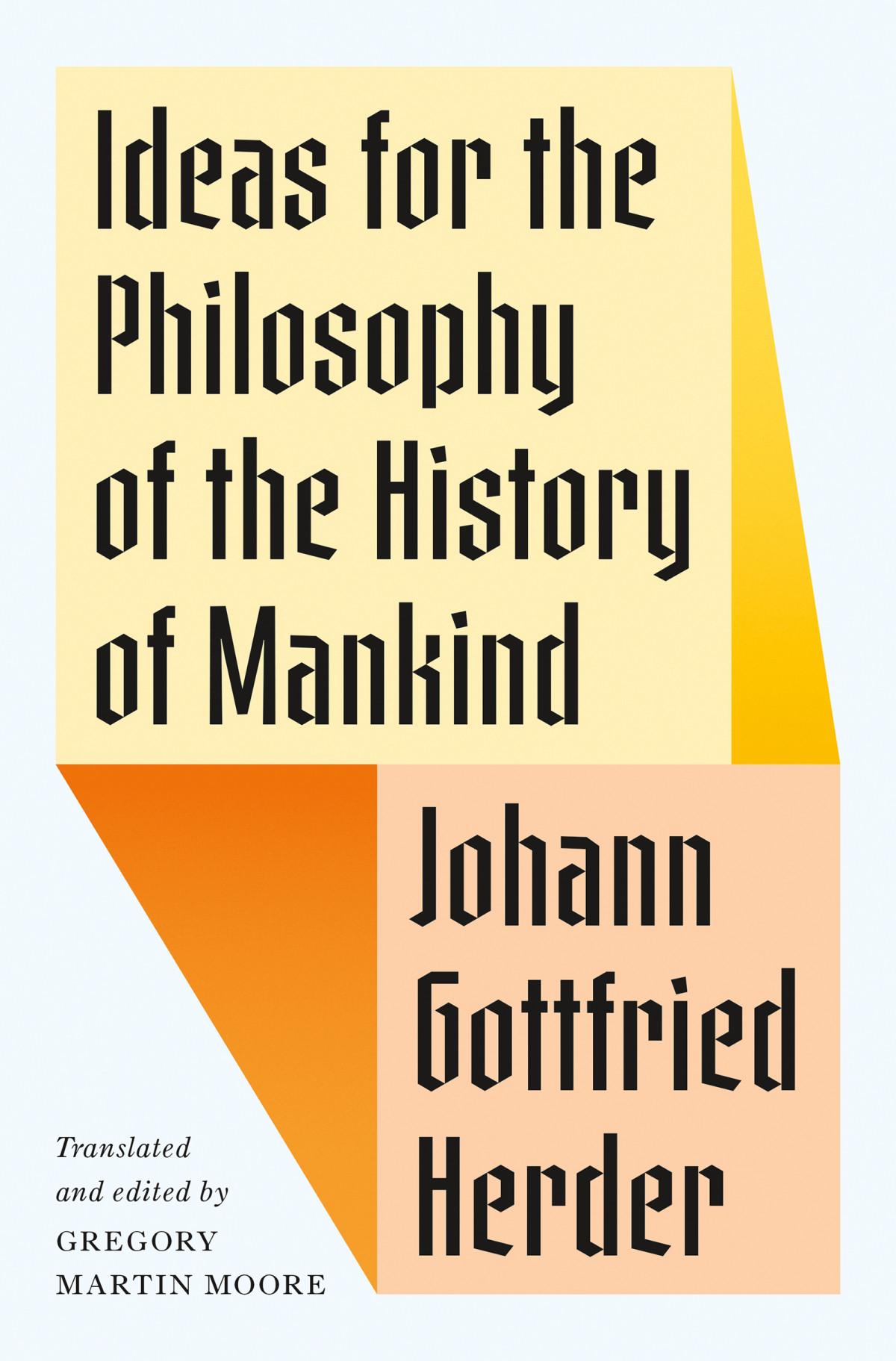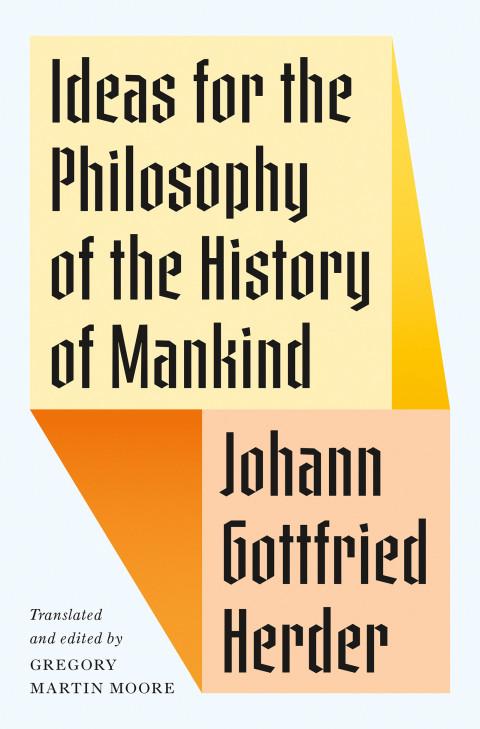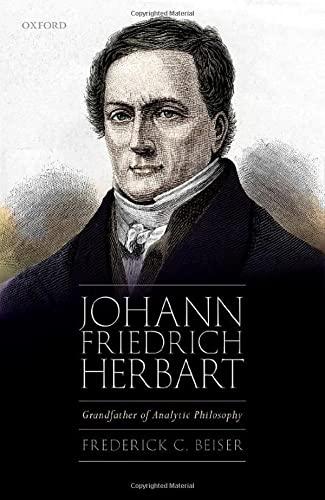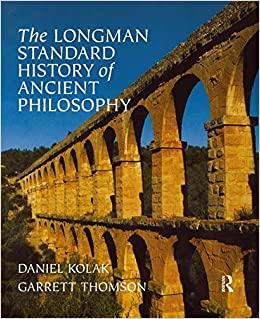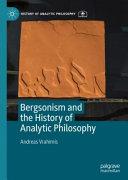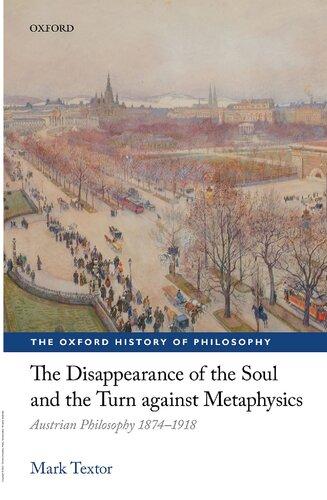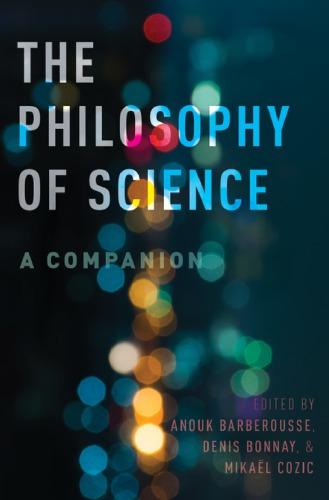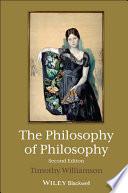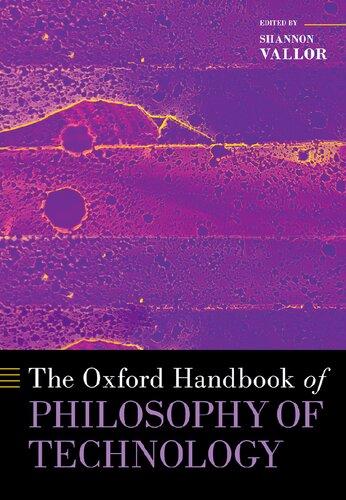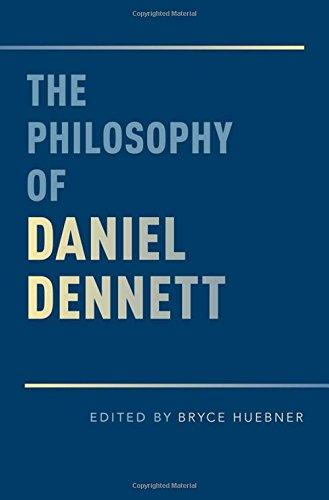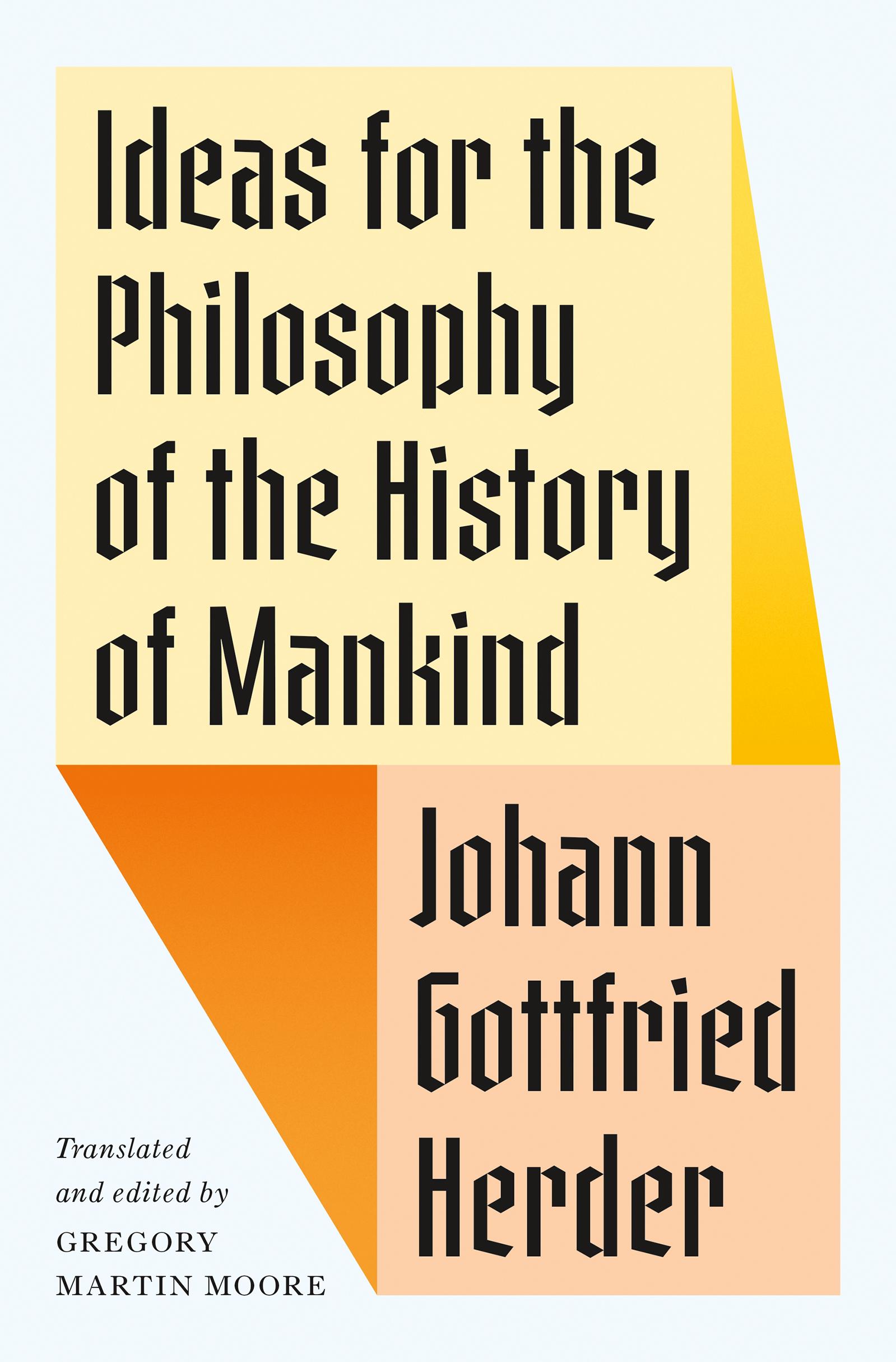Ideas for the Philosophy of the History of Mankind
JOHANN GOTTFRIED HERDER
TRANSLATED AND EDITED BY GREGORY MARTIN MOORE
PRINCETON UNIVERSITY PRESS
PRINCETON & OXFORD
Copyright © 2024 by Princeton University Press
Princeton University Press is committed to the protection of copyright and the intellectual property our authors entrust to us. Copyright promotes the progress and integrity of knowledge. Thank you for supporting free speech and the global exchange of ideas by purchasing an authorized edition of this book. If you wish to reproduce or distribute any part of it in any form, please obtain permission.
Requests for permission to reproduce material from this work should be sent to permissions@press.princeton.edu
Published by Princeton University Press
41 William Street, Princeton, New Jersey 08540
99 Banbury Road, Oxford OX2 6JX press.princeton.edu
All Rights Reserved
ISBN 978-0-691-14718-5 eISBN 9780691255705
Library of Congress Control Number: 2023945235
Version 1.0
British Library Cataloging-in-Publication Data is available
Editorial: Ben Tate and Josh Drake
Production Editorial: Karen Carter
Jacket/Cover Design: Karl Spurzem
Production: Danielle Amatucci
Publicity: William Pagdatoon
Copyeditor: Hank Southgate
CONTENTS
Introduction xiii
NoteontheTranslation lxxv
PART ONE
Preface 3
Book 1 8
I. OurEarthIsaStaramongOtherStars 8
II. OurEarthIsOneoftheMiddlePlanets 10
III. OurEarthUnderwentManyRevolutionsbeforeItBecame WhatItIsNow 14
IV. OurEarthIsaSphereThatRotatesonItsAxisandMoves aroundtheSuninanObliqueDirection 16
V. OurEarthIsEnvelopedinanAtmosphereandin ContentionwithSeveralCelestialBodies 19
VI. ThePlanetThatWeInhabitIsaMountainofRockThat RisesUpovertheSurfaceoftheWaters 21
VII. TheMountainChainsMadeOurTwoHemispheresthe SceneoftheMostRemarkableVarietyandChange 28
Book 2 31
I. OurTerrestrialGlobeIsanImmenseWorkshopforthe OrganizationofExceedinglyDiverseBeings 31
II. TheVegetableKingdomofOurEarthinRelationto HumanHistory 33
III. TheAnimalKingdominRelationtoHumanHistory 39
IV. ManIsanIntermediateCreatureamongtheAnimalsof theEarth 43
Book 3 46
I. ComparisonoftheStructureofPlantsandAnimalsin RelationtotheOrganizationofMan 46
II. ComparisonoftheSeveralOrganicForcesOperativein theAnimal 52
III. ExamplesofthePhysiologicalStructureofSeveral Animals 58
IV. OntheInstinctsofAnimals 62
V. TheAdvancementofCreaturestotheAssociationof SeveralIdeasandtoaPeculiarandFreerEmploymentof TheirSensesandLimbs 65
VI. OrganicDifferencebetweenHumanBeingsandAnimals 69
Book 4 73
I. ManIsOrganizedfortheFacultyofReason 73
II. RetrospectfromtheOrganizationoftheHumanHeadto theInferiorCreaturesApproximatingItsForm 84
III. ManIsOrganizedforFinerSenses,forArt,andfor Language 87
IV. ManIsOrganizedforFinerInstinctsandHencefor Freedom 91
V. ManIsOrganizedfortheMostDelicateHealth,yetatthe SameTimefortheGreatestDurability,andConsequently forHisDispersalacrosstheEarth 96
VI. ManIsFormedforHumanityandReligion 99
VII. ManIsFormedfortheHopeofImmortality 106
Book 5 107
I. ASeriesofAscendingFormsandForcesPrevailsinOur EarthlyCreation 107
II. NoForceofNatureIswithoutanOrgan;theOrgan, However,IsNevertheForceItself,WhichOperatesby MeansThereof 110
III. TheNexusofForcesandFormsIsneitherRetrogradenor Stationary,butProgressive 113
IV. TheRealmofHumanOrganizationIsaSystemofSpiritual Forces 116
V. OurHumanityIsOnlyPreparatory,theBudofaFuture Flower 121
VI. ThePresentStateofManIsProbablytheConnectingLink betweenTwoWorlds 125
PART TWO
Book 6 133
I. OrganizationofthePeoplesLivingNeartheNorthPole 133
II. OrganizationofthePeoplesontheAsiaticRidgeofthe Earth 138
III. OrganizationoftheFinelyFormedPeoplesofThis Region 143
IV. OrganizationoftheAfricanPeoples 147
V. OrganizationofMankindintheIslandsoftheTropics 153
VI. OrganizationoftheAmericans 155
VII. Conclusion 163
Book 7 165
I. ThoughMankindMayAppearinSuchVariousForms throughouttheWorld,TheyBelongtoOneandtheSame Species 165
II. TheOneSpeciesofManHasAcclimatizedItself EverywhereonEarth 169
III. WhatIsClimate,andHowDoesItAffecttheFormationof Man’sBodyandSoul? 174
IV. TheGeneticForceIstheParentofAllFormsonEarth, WhichtheClimateAffectsEitherAdverselyorBeneficially 179
V. ConcludingRemarksontheConflictbetweenGenesisand Climate 185
Book 8 190
I. TheSensibilityofOurSpeciesVarieswithItsFormsand Climate;ButItIsaHumanEmploymentoftheSensesThat EverywhereLeadstoHumanity 190
II. TheImaginationofMenIsEverywhereOrganicand Climatic,butEverywhereGuidedbyTradition 196
III. ThePracticalUnderstandingofMankindHasEverywhere DevelopedinResponsetotheDemandsofaParticular ModeofLife;butEverywhereItIstheFlowerofNational Genius,theOffspringofHabitandTradition 203
IV. TheSensationsandInstinctsofMenAreEverywhere AdaptedtotheConditionsinWhichTheyLiveandtoTheir Organization;ButEverywhereTheyAreGovernedby OpinionsandHabit 209
V. TheHappinessofManIsEverywhereanIndividualGood; ConsequentlyItIsEverywhereClimaticandOrganic,the OffspringofPractice,Tradition,andHabit 219
Book 9 225
I. ForAllThatManFondlyImaginesThatHeProduces EverythingfromHimself,yetHeDependsonOthersforthe DevelopmentofHisFaculties 225
II. TheParticularMeansofFormingManIsLanguage 231
III. AlltheArtsandSciencesoftheHumanSpeciesHave BeenInventedbyMeansofImitation,Reason,and Language 238
IV. GovernmentsAreOrdersofMen,fortheMostPart EstablishedontheBasisofInheritedTradition 242
V. ReligionIstheOldestandMostSacredTraditioninthe World 249
Book 10 255
I. OurEarthIsSpeciallyFormedforItsLivingCreation 255
II. WhereWasManFormedandWhereHisMostAncient Abode? 257
III. TheCourseofCultureandofHistoryFurnishesProofThat theOriginoftheHumanSpeciesWasinAsia 262
IV. AsiaticTraditionsontheCreationoftheEarthandOrigin ofMankind 267
V. TheOldestWrittenTraditionontheBeginningsofHuman History 271
VI. ContinuationoftheOldestWrittenTraditiononthe BeginningsofHumanHistory 276
VII. ConclusionoftheOldestWrittenTraditionontheOriginof HumanHistory 282
PART THREE
Book 11 287
I. China 288
II. Cochin-China,Tonkin,Laos,Korea,EasternTartary, Japan 296
III. Tibet 298
IV. Hindustan 302
V. GeneralReflectionsontheHistoryofTheseStates 307
Book 12 312
I. Babylon,Assyria,Chaldea 314
II. MedesandPersians 319
III. Hebrews 324
IV. PhoeniciaandCarthage 330
V. Egyptians 336
VI. FurtherIdeasonthePhilosophyofHumanHistory 341
Book 13 346
I. TheSituationandPopulationofGreece 347
II. TheLanguage,Mythology,andPoetryofGreece 352
III. TheArtsoftheGreeks 356
IV. TheMoralandPoliticalPhilosophyoftheGreeks 362
V. ScientificEndeavorsoftheGreeks 369
VI. HistoryoftheRevolutionsinGreece 375
VII. GeneralObservationsontheHistoryofGreece 381
Book 14 387
I. EtruscansandLatins 388
II. TheEstablishmentsbyWhichRomeArrivedatPolitical andMilitaryAscendancy 394
III. ConquestsoftheRomans 399
IV. TheDeclineofRome 405
V. Character,Sciences,andArtsoftheRomans 411
VI. GeneralObservationsontheFateandHistoryofRome 419
Book 15 423
I. HumanityIstheEndofHumanNature,andwithThisEnd GodPuttheFateofMankindinTheirOwnHands 425
II. AllDestructiveForcesinNatureMustNotOnlyYield,in theCourseofTime,tothePreservativeForces,butMust
ThemselvesUltimatelyPromotetheConsummationofthe Whole 429
III. MankindIsDestinedtoPassthroughVariousDegreesof Culture;butTheirEnduringWelfareIsFoundedSolelyand EssentiallyonReasonandEquity 436
IV. BytheLawsofTheirInnerNature,ReasonandEquity Must,intheCourseofTime,GainaGreaterFoothold amongMankindandPromoteaMoreEnduringHumanity 442
V. AWiseGoodnessPresidesovertheFateofMankind; HenceThereIsNoNoblerDignity,NoPurerorMore LastingHappinessThantoWorkinConcertwithIt 448
PART FOUR
Book 16 457
I. Basques,Gaels,Cymry 458
II. Finns,Latvians,andPrussians 464
III. TheGermanPeoples 466
IV. SlavPeoples 470
V. ForeignPeoplesinEurope 472
VI. GeneralRemarksandConclusions 475
Book 17 479
I. TheOriginofChristianity,togetherwithItsFundamental Principles 480
II. PropagationofChristianityintheEast 488
III. ProgressofChristianityintheGreekLands 496
IV. ProgressofChristianityintheLatinProvinces 504
Book 18 511
I. TheKingdomsoftheVisigoths,Suebi,Alans,andVandals 511
II. KingdomsoftheOstrogothsandLombards 517
III. KingdomsoftheAlemanni,Burgundians,andFranks 523
IV. KingdomsoftheSaxons,Northmen,andDanes 530
V. TheNorthernKingdomsandGermany 536
VI. GeneralRemarksontheEstablishmentoftheGerman KingdomsinEurope 541
Book 19 547
I. RomanHierarchy 548
II. EffectoftheHierarchyonEurope 554
III. SecularProtectorsoftheChurch 559
IV. KingdomsoftheArabs 564
V. EffectsoftheArabKingdoms 571
VI. GeneralReflections 578
Book 20 580
I. TheCommercialSpiritinEurope 580
II. TheSpiritofChivalryinEurope 586
III. TheCrusadesandTheirConsequences 592
IV. TheCultureofReasoninEurope 599
V. InstitutionsandDiscoveriesinEurope 606
VI. ConcludingRemarks 610
Appendix:PlanfortheConcludingVolumeoftheIdeas (1788/89) 613
Notes 615 Index 693
INTRODUCTION
“WAS HERDER A GREAT MAN?” wondered the essayist Thomas De Quincey in 1823, a few months after the Confessions of an English Opium-Eater had won him instant notoriety and some twenty years after his subject’s death. If he declared himself at a loss to answer his own question, it was not from ignorance or an insular mistrust of the foreign. De Quincey, who in his memoir fondly recalled the giddy intoxication promised by a roaring fire, “a quart of ruby-coloured laudanum … and a book of German metaphysics,”1 had long devoted himself to the study of Kant and would tirelessly champion, before the tribunal of British taste, the literature of Lessing, Schiller, and especially Jean Paul. But Herder puzzled him: “I still find it difficult to form any judgment of an author … so polymorphous as Herder: there is the same sort of difficulty in making an estimate of his merits, as there would be to a political economist in appraising the strength and weakness of an empire like the Chinese, or like the Roman under Trajan.”2 Herder would doubtless have bristled at the terms of comparison, and dismissed the younger man’s insolent suggestion that, since Herder had reached only his sixtieth year after “a life of most exemplary temperance,” he might have enjoyed greater longevity by turning to the bottle or the poppy. But De Quincey’s perplexity is understandable: Herder was indeed one of the most versatile and original thinkers of the European Enlightenment. A theologian, critic, educator, antiquarian, folklorist, poet, and translator, he wrote prolifically, and on a remarkable variety of subjects, making seminal contributions to the philosophy of history, culture, religion, art, and language. But what is true of Herder’s accomplishments as a whole—that they defy easy
description—applies equally to the colossal, ambitious, and yet unfinished edifice intended as his magnum opus: the Ideas for the PhilosophyoftheHistoryofMankind.
Published in four installments between 1784 and 1791, and translated into English for the first time in 1800, the Ideas, like Vico’s similarly adventurous and unclassifiable chef d’oeuvre, aspired to nothing less than the founding of a “new science.” The object of that science was to discover the laws and purpose of history, not in divine or metaphysical legislation, but in the observable regularities of nature: to extend to the human world those empirical investigations that since Copernicus had yielded insight into the machinery of the universe. This required that Herder first relate the history of nature itself, beginning with the formation of the solar system and of the earth; then survey the frontiers of the mineral, vegetable, and animal kingdoms; enumerate the powers of organic life; distinguish the species character of mankind, which Herder terms “humanity” (Humanität); and, finally, explain the biological origin and function of those unique phenomena in which that species character is manifested, namely culture. Only then does Herder feel ready to narrate the course of history, understood as the progressive and maximally diverse development of our faculties, as the process by which we express our humanity. The Ideas, then, aims to be a thoroughly naturalistic work, but one nevertheless consistent with Scripture—Herder was, after all, the head of the Lutheran Church in the Duchy of Saxe-Weimar. By articulating a monism, in which Herder was confirmed by his reading of Spinoza, the Ideasseeks to reconcile opposites, to overcome the dualism and deism, materialism and mysticism between which modern thought oscillated. Impatiently awaited and, with certain conspicuous exceptions, warmly received by contemporaries, it would be heralded as one of the supreme achievements of the German literary reflorescence that Herder himself had done so much to bring about and as the programmatic statement of Weimar Classicism. (It is no coincidence that, when, in 1788, the Dowager Duchess Anna Amalia sat for a
portrait by Angelika Kauffmann, she posed with a copy of the Ideas resting on her lap.) The Ideaswas prized not only for the grandeur of the vistas that it opened on nature and history, but also for the majesty of its moral vision, for the hope and consolation it offered to those pondering the mysteries and meaning of human existence. It was, Benjamin Constant confided to his diary in 1804, “like a warm, soft bed in which one may dream pleasantly.”3
The awkward title of Herder’s work, abbreviated by the first editor of his collected writings to Ideas for the History of Mankind, is at once accurate and misleading.4 On the one hand, the book declares itself to be tentative and preliminary, allegedly preparing the way for a fuller, more systematic investigation of its subject matter, but also brimming with insights, observations, and countless suggestions for future avenues of research. On the other hand, and contrary to its reputation for conceptual diffuseness—Coleridge called it “a painted Mist with no sharp outline”5—the Ideas evinces a remarkable cohesion, not only in the sustained manner of argument, unlike anything Herder had ever attempted before, but in the unprecedented synthesis of multiple branches of eighteenth-century knowledge, including physics, chemistry, geography, anatomy, embryology, and ethnology, and in the ongoing dialogue with every major thinker of the Enlightenment. As such, and as a contribution to anthropology, the elaboration of which ranked among the most urgent tasks of the age, the Ideas was a timely book and, in the words of Christian von Bunsen, the Prussian ambassador to the Court of St James’s, would “continue to live and to be studied, when ninety-nine out of one hundred celebrities of this century and of the last shall have been forgotten.”6
Yet there is some truth to Nietzsche’s observation that “even Herder’s major work, for example, his Ideas for the History of Mankind [sic], was something antiquated as soon as it appeared.”7 The convictions that motivated the Ideas; the questions that it sought to answer; the debates in which it was engaged: all these were promptly swept away by events beyond Herder’s control. The
French Revolution not only interrupted the publication of the Ideas, casting doubt on the narrative that Herder wished to unfold; but the ensuing political reaction, both before 1815 and in the decades thereafter, gave rise to an intellectual climate at odds with the liberal sentiments informing Herder’s work. Even before the storming of the Bastille, however, the appearance of the Critique of Pure Reason in 1781 had begun by the following decade to shift the ground beneath Herder’s feet: signaling, at least from the latter’s perspective, a return to philosophia prima and the arid metaphysical wrangling against which he had long campaigned. Herder, who had studied under Kant in Königsberg, felt even more aggrieved when, just a few months after the appearance of Part One, this “arch-sophist and arch-scholastic”8 brought out his own, rather more succinct discussion of the topic under a suspiciously similar title—Idea for a Universal History with a Cosmopolitan Purpose—before proceeding to write haughty, finger-wagging reviews of the first and second volumes of Herder’s book. These schoolmasterly censures have cast a long shadow over the reception of the Ideas; so, too, has an embittered Herder’s decision to devote his last years to anti-Kantian polemics that so obviously failed to turn the tide of German philosophy.
Notwithstanding these obstacles, the Ideas exercised a profound influence in the nineteenth century and beyond. Goethe, a close collaborator while Herder was preparing Part One, and who had embarked on his own important researches in comparative anatomy and morphology, would claim in 1830 that Herder’s work had “passed into the knowledge of the whole mass of people to such an extent that only a few who now peruse it will learn anything new,” precisely because the public had already encountered the same precepts in “hundreds” of filiations from Herder’s original.9 The Ideas left its mark on the Romantic Naturphilosophie of Schelling, Alexander von Humboldt, and Franz von Baader; Franz Josef Gall’s phrenology; on modern geographical science as established by Carl Ritter and later Friedrich Ratzel; on the elaboration of the
pedagogical ideal of Bildung or self-cultivation, closely associated in Germany with Wilhelm von Humboldt and in the English-speaking world with Matthew Arnold; and perhaps most evidently on the enormous growth of historical thought so characteristic of European but especially German intellectual life in the nineteenth century: represented by figures such as Hegel, Droysen, and even Marx, but also François Guizot, Victor Cousin, Ernest Renan, Thomas Henry Buckle, Thomas Carlyle, and William Lecky. But if in Germany
Rankean historiography tended to be principally concerned with the state, an institution about which Herder remained at best ambivalent, then the Ideas had the greatest effect on those who sought to expand Herder’s analysis of culture and society, beginning with Karl Heinrich Pölitz’s doomed attempt to shore up the supposedly insecure edifice of Herder’s Ideas with Kant’s critical philosophy;10 through Slavist philologists such as Pavel Šafárik and Ján Kollár; republicans like Johann Georg August Wirth, who saw the Herderian history of culture as a necessary means to political emancipation; later proponents of a Kulturgeschichte such as Karl Lamprecht and Kurt Breysig; Wilhelm Wundt’s psychologization of history, understood explicitly as a development toward “humanity” in Herder’s sense; and the anthropology of Franz Boas.11 But these are all collateral heirs. The true lineal descendant of the Ideas was Hermann Lotze’s Microcosm (1856–64), itself one of the most consequential philosophical works of the second half of the nineteenth century, which strove to reconcile mechanism and idealism, and to offer a comprehensive account of nature and human character, by recapitulating, “with the changed points of view to which the present age has attained, the undertaking that was begun so brilliantly in Herder’s IdeasfortheHistoryofMankind[sic].”12
The Ideasfaded into oblivion after the First World War: amid the prolonged crises of modernity, Herder, the “apostle of humanity,” as he had been routinely eulogized, was increasingly hailed as the “prophet of Deutschtum” and the harbinger of German irrationalism.13 Even as critical interest in Herder reawakened in the
last decades of the twentieth century, attention has been focused on the exuberant, essayistic writings of the young StürmerundDränger rather than on the mature, imposing work that previous generations considered his masterpiece and by which he had been “almost exclusively known.”14 It is time to return to the Ideas. Not only so that Herder himself emerges more clearly into view, in all the polymorphism that De Quincey noticed, but because our understanding of the Enlightenment itself will remain incomplete without an appreciation of his achievement. We might say, borrowing Herder’s description of humankind’s relation to the rest of creation, that the Ideas represents the pinnacle and epitome of eighteenth-century thought, demonstrating, for all its regional and confessional diversity, the fundamental unity of the European Enlightenment. It also reveals a thinker who deserves to be ranked alongside Montesquieu, Rousseau, and Ferguson as the most penetrating observers of human nature; a writer whose talent for historical portraiture rivals Voltaire and Hume while far surpassing any contemporary in Germany; and a philosopher of history who, by contrast with the post-Kantian tradition of Fichte, Hegel, and Schlegel, insisted on a fruitful blend of concrete fact and rational explanation, instead of the a priori speculation about final ends divorced from the material reality of the past that Nietzsche derided as “underhanded theology.”15 The Ideas is, to borrow Goethe’s mocking assessment of his own Iphigenia in Tauris, “deucedly humane” (verteufelthuman).16 It still has much to teach us.
History and Philosophy in the Eighteenth Century
Shortly after Melchior Adam Weikard had arrived in Saint Petersburg to take up his post as court physician, he was asked by Catherine the Great to report on some of the latest books published in Germany. When he began to speak of “a brand new philosophical work by Mr Herder on the history of mankind,” the empress cut him short. “Who is this Herder?” she demanded. A clergyman in Weimar,
came the reply. “A clergyman?” mused Catherine. “Then it can’t be a philosophical work. If this fellow is a philosopher, then he can’t be a clergyman and if he’s a clergyman, he can’t continue as a philosopher. Admittedly, the supernatural mischief that passes for philosophy in some quarters today is more suited to clergymen, Jews, and heathens; but it remains incompatible with good sense.”17 If Catherine’s improvised tirade reveals the degree to which she had imbibed the anticlerical attitudes of the French Enlightenment, some of the leading figures of which she counted as her friends, it is perhaps even more telling that, unlike Herder’s professional standing, the very subject matter of his book passes without comment, as if it were perfectly commonplace. It no longer is. What did it mean, in 1784, to write a philosophy of the history of mankind?
What came to be called the philosophy of history emerged as a response to events in the last quarter of the seventeenth century, when the twin authorities of revealed religion and of the ancients began to wane in that period of intellectual unrest that Paul Hazard famously characterized as “the crisis of the European mind.”18 Established modes of writing history had become increasingly untenable: rejected by Cartesian philosophy as both useless and inevitably partial, incapable of arriving at rational and systematic truths; mistrusted by skeptics, who questioned the credibility of the testimonies on which historians drew and in extreme cases doubted whether knowledge of the past was even possible; and threatened by the incipient disenchantment of European thought. At the turn of the eighteenth century, there were three main genres of historiography. Christian universal history, originated by Eusebius, revived in the Protestant Reformation by Johann Carion and Philip Melancthon, and perfected by Jacques-Bénigne Bossuet, sought to chronicle the events of the world during the six thousand years or so assumed to have elapsed between Adam and the present day. Pegged to the chronologies of Scripture, and especially the prophetic dreams of the Four Monarchies in the Book of Daniel, it contrasted
the vicissitudes of human life with the eternal Word of God and was intended as a meditation on the vanity of existence: the history of the earthly city having meaning only to whatever extent it reflected the glory of the civitas dei. Secondly, the neoclassical tradition of civil history inaugurated by Machiavelli and Guicciardini narrated the exemplary actions of great men or the rise and fall of republics. It, too, viewed history as magistra vitae: its purpose was to be instructive or what Polybius had called “pragmatic.” But its emphasis on the virtùof individual statesmen and on the guiding principle of raison d’état, to say nothing of the resurrected doctrine of the endless cycle of constitutional forms (anacyclosis), sat rather uneasily with the providential framework of universal history and could not account for how the remote biblical past bore on more recent times. A third field of historical endeavor was antiquarianism or erudition, which, eschewing chronology and ignoring the political, aimed to collect, preserve, and interpret every kind of record of the past—legal, religious, literary, or artistic. It extended the scope of historical inquiry, creating the auxiliary sciences of diplomatics, epigraphy, paleography, iconography, and numismatics, and sought to buttress it against skeptical interrogation; but only deepened the crisis by generating multitudes of facts orphaned from any immediate utility.
These modes of history, being either purely descriptive or didactic, tended to generalize without regard to particulars or to accumulate minutiae in the absence of some larger framework. The challenge facing historians at the beginning of the eighteenth century, then, was to find a way to explain the relation between facts, to arrive at general maxims by which the past might be interpreted, while still doing justice to the richness of concrete detail. To achieve this, history had to become “philosophical.” If, as dictated by the customary divisions of human knowledge, historia had been concerned solely with recording the phenomena furnished by either the senses or memory, then philosophy, which was supposed to pertain to the rational faculty, aimed to discover the causes, the
principles underlying those phenomena. “Philosophy” in this context did not refer to a specific epistemological theory or view, but rather to a habit of mind. As the Encyclopédieput it, “To philosophize is to give reasons for things or at least to search for them, because, as long as we limit ourselves to observing and reporting, we are only historians.”19 Accordingly, philosophical history aspired to become, in Gibbon’s phrase, a “science of causes and effects”;20 or, in the definition of Ephraim Chambers, an account of the past that “without stopping at the shell or outside, the appearance of things, discovers the springs and movements of the several events.”21 But it often meant more than this: to write histoire philosophique—or, in the fateful phrase coined by Voltaire in 1765, the philosophiedel’histoire was to identify and reject the inherited errors and accumulated superstitions of the past, as well as to transcend the pedantry of the erudits. It was philosophical precisely because it was neither theological nor antiquarian: it was rational not credulous, mundane rather than miraculous. As such, philosophical history presented itself as an inherently critical enterprise and thus an important means of realizing the aims of Enlightenment.
In the view of John Logan, a minister and lecturer at Edinburgh, who would soon find himself defrocked and exiled to London, the philosopher ought to furnish a model for the historian because he “sees in the great, and observes a whole.”22 The larger “whole” that lay behind the events of the past was no longer supposed to be God’s will, but rather human nature: as such, histoirephilosophique effectively rewrote the tradition of universal history. It was the task of the philosophical historian to discover those forces that have shaped human nature, especially in the questions of lasting interest to eighteenth-century thinkers: namely, the means by which markedly different national characters are engendered and the reasons why states have progressed or declined over time. According to the distinction made famous by Montesquieu in De l’espritdeslois(1748), one of the most important works of the late Enlightenment, these forces were of two sorts: physical and moral.
Physical causes referred to the influence of climatic and geographic factors on social phenomena; moral causes to the influence of political and social conditions, including systems of government, customs, and religious beliefs. Because Montesquieu declared that “the empire of climate is the first of all empires”23 to which the human realm must pay tribute, he was understood as offering a simple theory of environmental determinism; but in fact, he argues that moral and physical causes concur in the formation of what he calls the “general spirit” of a nation, and it falls to the investigator to decide which plays the dominant role in any given case.
In Britain and France, at least, there existed two distinct subgenres of histoire philosophique. The most popular retained the narrative form of classical history, but interwove it with new textures. Voltaire and his successors would no longer be concerned solely with statecraft and military engagements, or remarkable individuals as exemplars of the vita activa, but rather with the movement “of the most considerable nations” toward moeurs or manners: those shared practices and values that, in Robertson’s words, defined the “progress of society in Europe” and set it apart from the “savages” of America and elsewhere. 24 With different modulations, the philosophical historians reprised their grand theme: the epic story of the emergence from medieval barbarism into enlightened modernity, during those centuries in which, as Hume put it, the peoples of the continent “began to unite themselves into one extensive system of policy”25 and establish contact with hitherto unknown parts of the world. As such, the domain of history was massively expanded to embrace the latest studies in law, religion, commerce, literature, the arts, and opinion—any realm of activity in which man and his manners might express themselves. By the end of the century, Isaac D’Israeli could declare, “[T]he history of manners has become the prime object of the researches of philosophers.”26 For Voltaire, the gradual improvement of moeurs was the only way of finding meaning, and indeed truth, in the past— for civil history consisted in nothing more than empty repetition and
senseless destruction. It was a view he shared with Fontenelle, who inaugurated another vein of universal history, one that traced the advancement not of manners, but of the human mind. This histoire de l’esprit humain, taken further by Condillac and Turgot, pursued the growth of knowledge and reason, from the infancy of the species, revealed in myth and religious beliefs, through the Greeks and beyond, as error was dispelled and truth uncovered, to its supposed maturity with the dawning of contemporary science. Not political upheavals and subversions, Condillac suggested, but the “revolution of opinions” formed the substance of history. The “history of laws, arts, and sciences,” which for Voltaire revealed the process by which mankind, and especially their European branches, were becoming civilized, was for Goguet an index of “the history, properly speaking, of the human mind.”27
The second kind of histoire philosophique was more schematic, forgoing narrative in favor of a theoretical or, in Dugald Stewart’s influential description, a “conjectural” reconstruction of the past.28 It arose in response to Hume’s demand for a comprehensive “science of man” and, together with the contemporary interest in psychology, physiognomy, aesthetics, and pedagogy, was clear evidence of the anthropological turn taken by the European Enlightenments.29 This research program, particularly as it was developed in Scotland, consisted of two elements. First came the description and classification of the physical, mental, and moral powers of the human being: Adam Ferguson, John Millar, and Lord Kames all understood themselves to be working toward a “natural history of man,”30 predicated on the identity and constancy of his species character irrespective of time and place. To this they appended a novel variety of civil history: one that traced not the fortunes of particular states or, as with Voltaire, the triumphal march of moeurs among the most polished nations, but rather the origin and evolution of the social structures, political institutions, and property regimes supposedly common to all branches of humankind. At issue, in other words, was the history of civilization as such, a stadial theory of
progress from rudeness to refinement actuated by changes to the mode of subsistence, from man’s emergence from the state of nature to the incessant exchange of goods and services, moral and material, between the members of that novel condition at which northern Europe had arrived: the commercial society. In the absence of records to document the earliest periods of collective existence, these thinkers used a comparative approach, drawing conclusions from recent reports of native inhabitants of the Americas or the islands of the South Seas or making inferences from the established facts of human nature.
With the possible exception of Winckelmann, and the abortive efforts of Thomas Abbt, there were in the German-speaking lands no philosophical historians of the stature of Voltaire, Hume, and Robertson: these men of letters, paragons of bienséance and bon goût, wrote for a public that barely existed east of the Rhine. Historiography was instead concentrated at the universities and academies. At Halle, Siegmund Jakob Baumgarten oversaw the translation of the sixty-five-volume An Universal History from the Earliest Account of Time (1747–68), which, lacking a theme or principle of selection, had no pretensions to “philosophy.” At Göttingen, scholars presided over the transformation of history into a rigorous and methodologically distinct science. Göttingen, then, was not only the birthplace of Geschichtswissenschaft, brooded over by the rivals Johann Christoph Gatterer and August Ludwig von Schlözer; it also witnessed the historicization of cognate disciplines: classical philology (Christian Gottlob Heyne); biblical criticism and oriental studies (Johann David Michaelis and Johann Gottfried Eichhorn); comparative anatomy (Johann Friedrich Blumenbach); and ethnography (Christoph Meiners). Like the French and British, who “aroused us by their better examples” and put an end to “medieval taste,” Schlözer insisted that history was “no longer just the biographies of kings, chronologically precise indications of changes of government, wars and battles, the relation of revolutions and alliances.”31 Yet the members of the Göttingen School shared the
conviction that their illustrious forerunners had not taken the evaluation of sources far enough and sacrificed substance to style. Gatterer railed at those of his countrymen—“affected Humelets, or Robertsonnies, miniature German Voltaires”—who purportedly dismissed thoroughness as pedantry and promised that such “insects” would be pursued “without mercy.”32 The Göttingen School aimed not at “philosophical” but rather “pragmatic” history: Gatterer in fact wished to purge history of philosophy—that is, a priori principles à la Montesquieu—and to ensure the autonomy of his chosen field. The pragmatic historian’s task was to order his narrative in terms of the causal relationships among events, to discern the systems that link events beyond mere geographical or temporal contiguity, and thereby uncover the hidden unity of res gestae: “The highest degree of the pragmatic in history would be to present the general connection of all things in the world (nexus rerum universalis).”33 For this reason, Gatterer and Schlözer were preoccupied with the theory and practice of universal history— Gatterer made six separate attempts at such a venture—both scholars viewing this as the supreme accomplishment of the Verwissenschaftlichung of their profession. Indeed, Schlözer understood the utility of universal history to lie in the fact that it was at bottom a “history of mankind,” a “new kind of history that hitherto has been practiced mostly by philosophers, when properly it is the province of historians.”34
In Germany, the Geschichte der Menschheit, which might be translated as both the history of mankind and of human nature, had, as Johann Nicolas Tetens observed, indeed become “a favorite expression during the last few years,”35 referring to a loosely defined synthesis of history and philosophy, which, though avowedly indebted to the Scottish School and the histoire del’esprit humain, had acquired a distinctive character of its own. This was not least because, like enlightened German thought in the second half of the eighteenth century more generally, its agenda was informed by Johann Joachim Spalding’s best-selling theological apologia Die
Bestimmung des Menschen (The Destination of Man, 1748). In this short treatise, Spalding renounces dogmatic argumentation in favor of Shaftesburyian soliloquizing, and, by reflecting on his own feelings and intuitions, mounts a defense of the truths of revealed religion and the immortality of the soul. By finding a new language to answer the question of “why I exist and what, according to reason, I should become,”36 Spalding provoked intellectual debates in Germany that went far beyond his devotional intentions and the renewal of Protestant culture. The Bestimmung des Menschen an ambiguous phrase that referred to man’s purpose and place in Creation as well as to the determination of his specifically human endowments—became the leading philosophical issue of the second half of the eighteenth century, not only among the so-called popular philosophers, men like Thomas Abbt, Christian Garve, and Moses Mendelssohn, who sought to address more practical and worldly concerns than the supposed hair-splitters in the universities, but even and especially Kant. Accordingly, Spalding exerted an influence on the genre of Geschichte der Menschheit, too. The history of mankind, wrote Karl Franz von Irwing, who would later describe his own project as a “philosophical anthropology,” is “at bottom also a history of the human understanding” that “teaches us that perfection and happiness are the ultimate destinations and final purpose of mankind.”37
Irwing’s credo deliberately echoes the most celebrated practitioner of the Geschichte der Menschheit in the Germanspeaking world: the Swiss litterateur Isaak Iselin, whose work PhilosophicalConjectures on theHistory of Mankind, first published in 1764, ran to several subsequent editions. Iselin’s achievement, and the occasion of the acclaim that greeted his work, was to show that the history of man grants insight into his destination—and vice versa. In so doing, he first aimed, like the Scots before him, to refute the troubling conclusions of Rousseau that the golden age of humankind lay in the remote past and that history represented only a process of degeneration from a primordial condition of moral
health. Second, he wrote, taking up the invitation of Kames himself, to correct Montesquieu’s supposed emphasis on physical causes to explain political difference and demonstrate instead “that human nature itself has a greater influence on the introduction of laws and customs than all other causes that Montesquieu adduces.”38 Iselin’s speculations rest on an analogy between the species and the individual. As mental life is defined by the interplay of the sensuous, imaginative, and rational faculties, each predominating at successive stages in the existence of the human being, so these psychological principles correspond to our collective advancement from the state of nature, through savagery, to civil society. This development is one of linear progress, “from extreme simplicity to an ever higher degree of light and prosperity,” helped along by an “impulse to perfection.”39 If the greatest happiness is experienced by the individual when he achieves rational maturity, so the happiness of the species increases throughout history. And as the individual, like Spalding, may reflect on his life and the causes of happiness and unhappiness, inferring maxims of conduct, so the philosopher of the history of mankind is led to those grounds “according to which in better times more fortunate peoples can promise themselves a more perfect prosperity.”40 In other words: as we gain comprehension of the internal logic of history, we are enabled to accelerate or reinforce the rational and ethical structures of human existence and thereby promote the felicity of all.
If Schlözer had seen the practice of universal history as a means of challenging the philosophical pretensions of writers such as Iselin, his Göttingen colleague Christoph Meiners saw matters differently. In his hands, the Geschichte der Menschheit was transformed into a “new science,” distinguished from universal history by its objects and methods, but sharing Schlözer’s intellectual imperialism. If universal history was concerned with a sequential narrative relating or explaining the actions and events of notable peoples during recorded time, the “history of mankind … teaches us not so much what man has done or suffered in different ages, but rather what he was or
indeed still is.”41 It concerned itself with a synchronous description of human nature, especially among the “unenlightened” nations, and those facets of social life—habitat, racial diversity, clothing, diet, the treatment of women, government, laws—that arise directly from our species being. In the 1780s, this interpretation of the Geschichteder Menschheitas the study of homonaturawas understood in Germany to be complementary to a related field of inquiry: the Geschichteder Cultur (history of culture).42 At the beginning of the eighteenth century, the primary meaning of “culture,” as both the Encyclopédie and Johnson’s Dictionaryattest, still referred to the literal practice of husbandry, to tillage, the improvement of the soil, the culture dela terre. Since the Renaissance, however, certain thinkers, particularly figures such as Bacon and Pufendorf, had discussed culturaanimias the dutiful improvement of the mindas a means to overcome brutish instinct and approximate virtuous and rational conduct—and thus a means to becoming fully human. This figurative usage acquired greater currency in enlightened circles, transferred from individual psychology to the collective, until in time “culture” came to be recognized as the object of histoire del’esprit humain: the process, unfolding over countless generations, by which the mental faculties of the species have been developed and knowledge expanded.43 This is what Lessing would famously call the “education of the human species.”44 By 1779, Irwing could speak of a “history of culture” as such. Culture he defined as “the sum of those perfections to which man can be raised from his original and rudest condition.” These encompass not only the enhancement of abstract thought, the emancipation from error and superstition, and the increase of knowledge, but allthe sundry ways in which our mental powers are expressed in human activity to promote the well-being and happiness of the species. Culture admits of degrees—Irwing discerns four stages in the evolution of culture—and is subject to local variation; but, he argued, the “philosophical history of general culture” would be “the true history of mankind,”45 precisely because it treats that character of human experience that is universal and
fundamental: how men create an artificial world in response both to their natural environment and to their own pressing needs and desires. Culture, then, is the means by which man realizes his destination. As the products of culture—education, laws, religion— serve in turn as the mechanism by which culture is inculcated and advanced, so its history results from the interaction of physical and moral causes. The GeschichtederCulturquickly established itself as a thriving enterprise in the last two decades of the eighteenth century, and would enjoy a remarkable career in the nineteenth, while the conceptual vagueness of the Geschichte der Menschheit saw it fall out of favor.
Herder and History before the Ideas
Herder’s former student Johann Danz once remarked that “the bulk of Herder’s writings might well be described as ideas for the philosophy of history of mankind”; the work on which he chose to bestow that particular title was the culmination of a lifetime’s preoccupation with these themes.46 There is more than a little truth to Danz’s observation. From the very beginning of his intellectual career, Herder reflected on the meaning of history and the historicity of human experience. As early as 1765, when he was twenty-one years old and a newly ordained minister in Riga, he jotted down notes for an unfinished essay that contain in embryo much of his subsequent thought. He declared that philosophy was in urgent need of reform: the Wolffian dogmatism that held sway in the universities remained stubbornly aloof from the quotidian concerns of ordinary men and women. It had to be brought down to earth and acquire practical value by putting the human being, as a creature of both reason and the senses, at its very center, thus exerting itself to inculcate morals, improve taste, and make citizens rather than mere ratiocinators [Vernünftler].47 Such a “philosophy of mankind,” which Herder, by his own admission, sought to make the animating principle of his sermons,48 would in turn be informed by the “history of mankind.” And this GeschichtederMenschheit, which like Iselin’s
work published just a year earlier, would treat not individual actions or political events, but rather human nature as such: differences in the legal, political, religious, ethical traditions of sundry peoples were to be explained, at least in part, by the variability of body, mind, and sentiments discernible in the species as a whole. Herder concluded by looking forward to a “Copernican” revolution when “the whole of our philosophy becomes anthropology.”49 Accordingly, the young Herder devoted much of his early attention to aesthetics. This discipline, in keeping with the intentions of its founder, Alexander Baumgarten, promised to explore those facets of human being that hitherto had been neglected, treating the homo sensualis as the necessary complement of the homo rationis. But, characteristically, Herder also insisted on the historical dimension of aesthetic cognition and creativity. “It is simply impossible,” he would write in 1774, “that a philosophical theory of the beautiful in all the branches of art and letters can exist without history.”50 In writings such as On the Ode (1764–65), Fragments on Recent German Literature (1766–67), the Critical Forests (1769), and Shakespeare (1773), Herder argued that that aesthetic forms, genres, and values are the products of a particular time and place; that the prevailing taste and mentality of a people, from which these phenomena derive their significance, are inconstant and mutable; that the primordially sensuous and poetic properties of literature have become increasingly intellectual and prosaic; that the tragedies of French neoclassicism, based anachronistically on the canons of Aristotelian poetics, lacked authenticity and the German mimicry of Gallic styles doubly so. Two conclusions followed from these premises, which would find expression in much of Herder’s subsequent oeuvre, up to and including the Ideas. First, to recognize that change is the “core of history”51 and to contemplate the vicissitudes of thought, feelings, and manners help us to overcome our pride and ignorance in assuming that the present epoch represents either the end of some process or the pinnacle of human achievement. Second, to understand an object or concept, the origins of which are lost to
